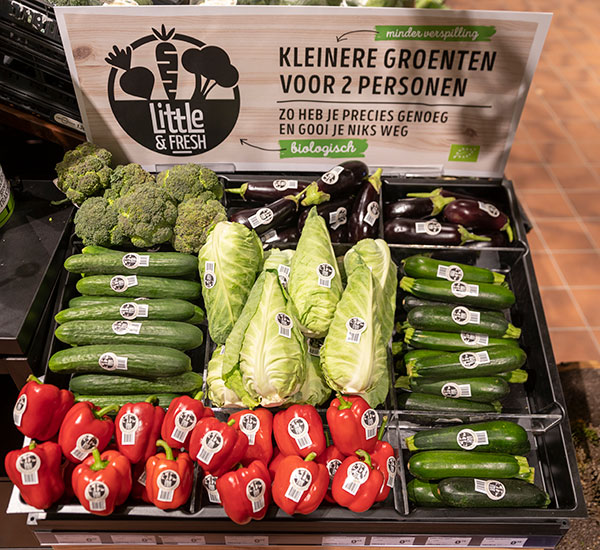When we think of fruit and vegetable production, so often the image that springs to mind is of farmers toiling away in the beautiful English countryside, lovingly tending to their crops.
But the traditional ‘farm-to-fork’ story actually starts much earlier with the seed breeders, the under-appreciated but vital craftsmen who produce the varieties that end up in our supermarkets, restaurants, box schemes and farm shops. And right now, organic seed is hot property.
It would be easy to assume that the organic seed production sector is a collection of small operators working almost as a labour of love, but the truth is vastly different – in reality, it is more expensive to bring commercial organic seed to market than conventional, due to the fact that plants must have greater pest and disease resistance to compensate for the lack of permissible artificial chemical crop protection.
Kate Burton, marketing expert at Elsoms Seeds, explains that new varieties can take anywhere from six to 15 years to produce depending on the life cycle and whether the line is an open pollinated (pure bred) or an F1 hybrid variety (where two seeds are cross-pollinated to gain the best traits of both). They then go through several years of rigorous trials to ensure they are suitable for the marketplace, at a cost of thousands of pounds.
Heleen Bos is organic specialist at major Dutch vegetable breeding company Rijk Zwaan. Bos says that demand for organic vegetables is rising as younger consumers, in particular, seek out food that contributes both to a healthy life and a healthy planet. “Rather than being part of the problem, they want to be part of the solution, and purchasing products that are contributing to a better world gives them a sense of pride,” she says.

Organics has been a major pillar of Rijk Zwaan’s work since 1992, but rather than seeing it as a separate part of the business, ideas that have been proven to work in organic find their way into conventional ranges, and vice versa. Bos calls this process ‘cross pollination’.
As governments clamp down on pesticide usage, even the biggest global heavyweights are taking a keen interest in organic breeding. “We foresee a future where conventional and organic agriculture merge into sustainable agriculture, with better soil management, using resilient varieties, and reduced fertiliser and crop protection inputs,” says Paolo di Lernia, head of global marketing communications for vegetable seeds at Syngenta. “This type of agriculture provides food security while protecting the environment and climate.”
Di Lernia cites the examples of cabbages that perform well with low nitrogen input, and cauliflower varieties that thrive in higher summer temperature, as new developments in conventional breeding that could find their way into organics.
One example of this sharing of organic ideas in seed breeding is the crunchy, red apple Zingy, grown by French company Innatis, which although not certified as organic, is grown in ‘environmentally-friendly’ orchards that favour organic pest control and protect biodiversity.
Elsewhere, this summer Rijk Zwaan will debut an as-yet-unnamed organic aubergine, a striking green and red-striped vegetable that is said to be extremely tasty and doesn’t brown when cut.
South Holland-based Rijk Zwaan, which has a dedicated organic website, is also behind a new organic range, Little & Fresh, which features smaller versions of favourites such as cucumbers, aubergines, courgettes, peppers, cauliflower, broccoli and fennel, and is focused on reducing waste as well as tapping into trends of health and convenience. The range is sold loose to minimise plastic packaging through Dutch supermarket Jumbo, with plans to expand across Europe.
“This organic concept was for small-size vegetables as household sizes become smaller and look for reduced waste and packaging,” explains Bos.

Organic seed breeding isn’t exclusively the domain of big business though. The Seed Co-operative is a community-owned organic seed company run by David Price and Kate Ayre in Lincolnshire, producing organic, open-pollinated seed that is available for everyone to use.
Price says what sets his organisation apart from the multinationals is the fact that it only produces organic seed bred under organic conditions and is targeted specifically at organic growers, whereas bigger companies might use hybrids of seeds that were originally destined for non organic varieties.
The business claims to be one of the UK’s largest growing organic seed and is reporting a surge in trade, but – underlining the chronic shortage of domestic seed producers – still only has three full-time staff. “If you speak to people selling organic seed in the UK, they’re all buying it in,” says Price. “We need to rebuild the skills base; it’s an industry that has almost died because the investment hasn’t gone into it. It’s got to happen.”
There are some green shoots for the domestic sector, with companies such as Vital Seeds in Devon, and there is an extensive catalogue of heritage seeds such as Garden Organic’s Heritage Seed Library. Internationally, an EU project is currently underway looking at improving transparency and competitiveness in the organic seed and breeding sector, and encouraging its wider uptake.
It all points to a future full of opportunity for both commercial and hobby growers to meet the UK’s increasing appetite for organic produce.












The future looks brighter a good time for river ford to start selling seeds